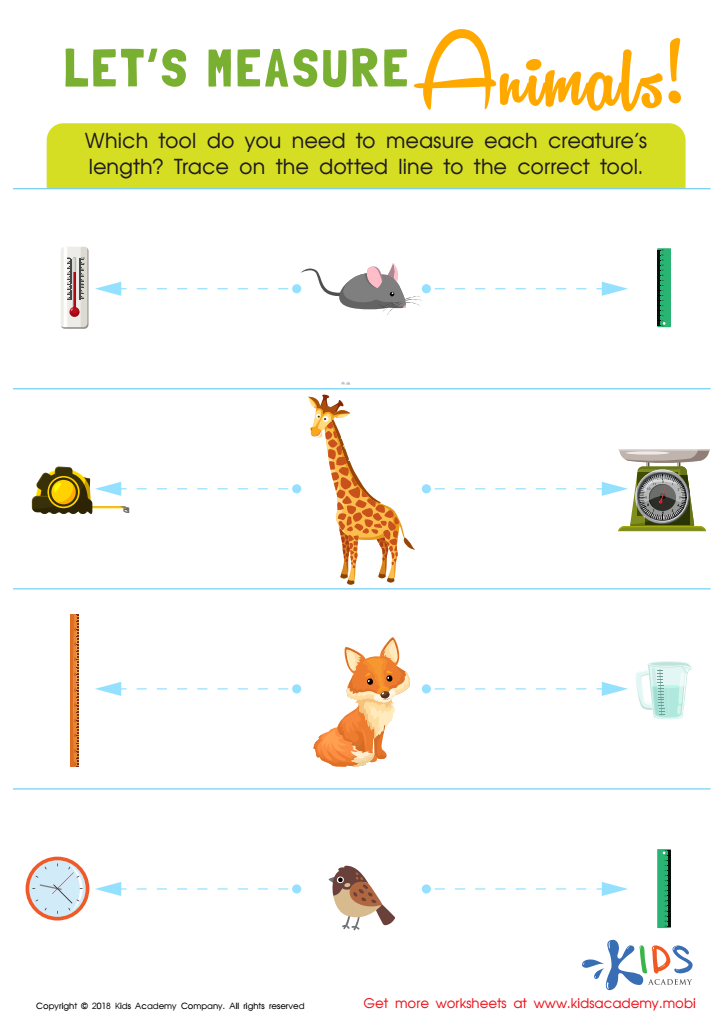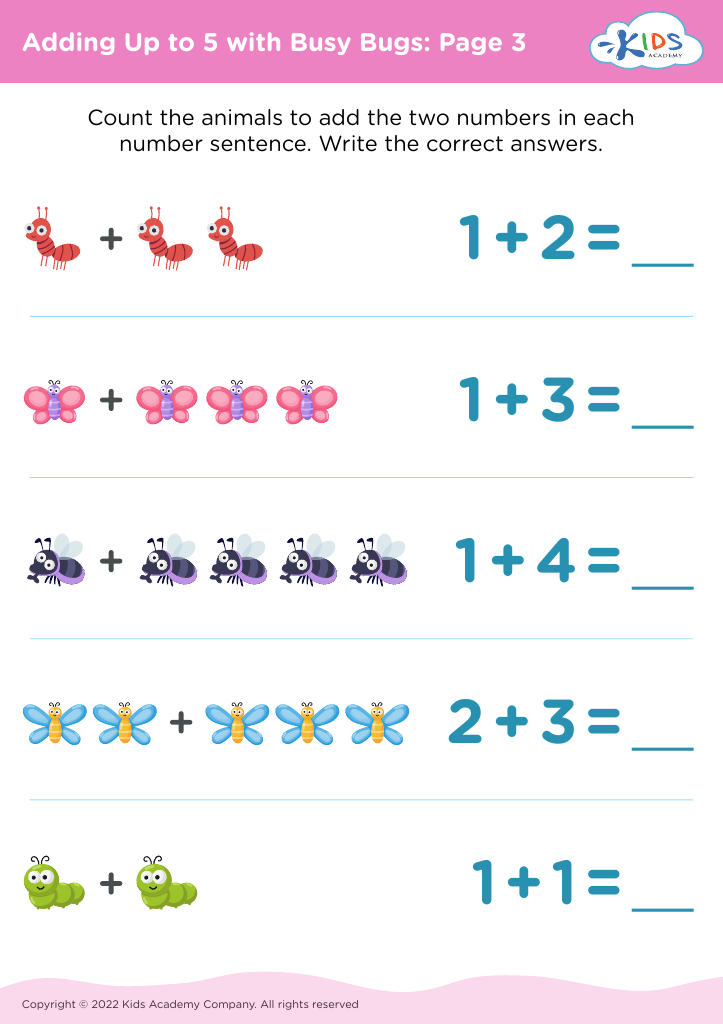Improving fine motor skills Worksheets for Ages 4-9
3 filtered results
-
From - To
Boost your child's dexterity with our "Improving Fine Motor Skills Worksheets for Ages 4-9." Designed by expert educators, these engaging printables enhance hand strength, control, and coordination. Our worksheets feature fun, interactive activities such as tracing shapes, cutting patterns, and drawing exercises, setting a solid foundation for writing and other essential skills. Perfect for home or classroom use, these resources support development through play and practice. Help your child master fine motor skills effectively while keeping things enjoyable and stimulating. Visit Kids Academy today and watch their skills grow by leaps and bounds!


Let's Measure Animals! Worksheet
Improving fine motor skills in children aged 4-9 is crucial for their overall development and success in various aspects of life. Fine motor skills involve the coordinated movements of small muscles, particularly in the hands and fingers, which are fundamental for performing everyday tasks such as writing, buttoning clothes, and tying shoelaces.
First, effective fine motor skills are foundational for academic achievement. In the classroom, children with well-developed fine motor skills can write more legibly and quickly, which is vital for completing assignments and participating in activities. Poor fine motor skills can lead to frustration and decreased confidence, impacting a child's willingness to engage in learning.
Second, fine motor skills support independence. Simple tasks like dressing oneself or using utensils properly are vital for personal autonomy. Mastery of these tasks boosts a child's self-esteem and fosters independence, vital qualities that contribute to social and emotional growth.
Third, enhancing fine motor skills can stimulate cognitive development. Activities that require precision and control, such as puzzles and art projects, enhance hand-eye coordination and problem-solving abilities, fostering neural connections in the brain responsible for planning and executing tasks.
In conclusion, parents and teachers should prioritize improving fine motor skills to ensure children flourish academically, gain independence, and develop essential cognitive abilities, setting them up for long-term success.


 Assign to My Students
Assign to My Students
















